14th Chess Olympiad

The 14th Chess Olympiad, organized by FIDE and comprising an open[1] team tournament, as well as several other events designed to promote the game of chess, took place between October 26 and November 9, 1960, in Leipzig, East Germany.
The Soviet team with six grandmasters, led by world champion Mikhail Tal, lived up to expectations and won their fifth consecutive gold medals, with the United States and Yugoslavia taking the silver and bronze, respectively. In a reversal of fortune from the previous Olympiad, the East German hosts finished 9th, right behind rivals West Germany. Unlike the last time, however, the match between the two was a tight affair that ended in a 2–2 draw.
Results
Preliminaries
A total of 40 teams entered the competition and were divided into four preliminary groups of 10 teams each. The top three from each group advanced to Final A, the teams placed 4th-6th to Final B, and the rest to Final C. All preliminary groups as well as Finals A and B were played as round-robin tournaments, while Final C with 16 teams was played as an 11 round Swiss system tournament.
Group 1 was won by the Bulgaria, ahead of Yugoslavia and the host nation. Norway, Finland, and Israel took the places 4-6, while Indonesia, France, Albania, and Malta finished at the bottom of the group.
The Soviet Union took first place in group 2, well ahead of Argentina and the Netherlands. Poland, Austria, and India made up the middle part of the group, while Portugal, the Philippines, Italy, and Monaco had to settle for the bottom.
Group 3 was won by England, ahead of Czechoslovakia and Hungary. The three Nordic nations Sweden, Denmark, and Iceland had to settle for Final B. Meanwhile, Mongolia, Tunisia, Greece, and Bolivia finished at the bottom of the group.
The United States clinched group 4, ahead of West Germany and Romania. Spain, Chile, and Cuba made up the middle part of the group, while Belgium, Ecuador, Ireland, and Lebanon completed the field.
Final
_gegen_Fischer_(USA).jpg)
Final A # Country Players Points MP 1  Soviet Union
Soviet Union Tal, Botvinnik, Keres, Korchnoi, Smyslov, Petrosian 34 2  United States
United States Fischer, Lombardy, Byrne, Bisguier, Rossolimo, Weinstein 29 3 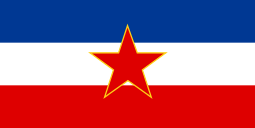 Yugoslavia
Yugoslavia Gligorić, Matanović, Ivkov, Bertok, Damjanović, Vukčević 27 4  Hungary
Hungary Szabó, Portisch, Barcza, Bilek, Lengyel, Kluger, 22½ 5  Czechoslovakia
Czechoslovakia Pachman, Filip, Fichtl, Hort, Kozma, Ujtelky 21½ 6 .svg.png) Bulgaria
Bulgaria Bobotsov, Padevsky, Neikirch, Kolarov, Minev, Milev 21 7  Argentina
Argentina Najdorf, Eliskases, Wexler, Bazán, Schweber, Foguelman 20½ 8  West Germany
West Germany Unzicker, Schmid, Darga, Lehmann, Bialas, Pfeiffer 19½ 9 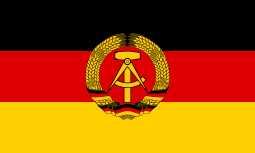 East Germany
East Germany Uhlmann, Pietzsch, Malich, Dittmann, Fuchs, Golz 19 10  Netherlands
Netherlands Euwe, Donner, Bouwmeester, Prins, Kramer, Langeweg 17 11 .svg.png) Romania
Romania Ghiţescu, Drimer, Radovici, Mititelu, Troianescu, Szabó 16½ 7 12  England
England Penrose, Golombek, Clarke, Haygarth, Barden, Wade 16½ 4 Final B # Country Points MP Head-to-head 13  Sweden
Sweden 27½ 14  Israel
Israel 26½ 15  Austria
Austria 24½ 16  Denmark
Denmark 23½ 13 3 17  Finland
Finland 23½ 13 1 18  Cuba
Cuba 23 11 19  Norway
Norway 23 10 20 .svg.png) Spain
Spain 22½ 21  Poland
Poland 22 22  Chile
Chile 19½ 23  Iceland
Iceland 16½ 24  India
India 12 Final C # Country Points MP 25  Philippines
Philippines 28½ 26  Indonesia
Indonesia 27½ 17 27 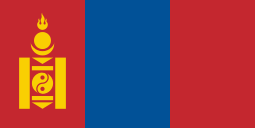 Mongolia
Mongolia 27½ 15 28 .svg.png) Albania
Albania 26½ 29  Ecuador
Ecuador 26 30  Portugal
Portugal 25 15 31  France
France 25 13 32  Italy
Italy 24 33 .svg.png) Belgium
Belgium 23½ 34 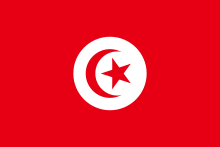 Tunisia
Tunisia 21½ 35 .svg.png) Greece
Greece 20½ 36 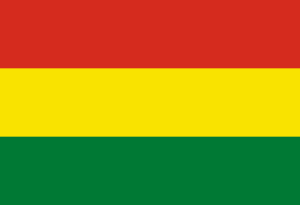 Bolivia
Bolivia 19½ 37  Monaco
Monaco 17½ 38  Ireland
Ireland 17 39  Malta
Malta 14 40  Lebanon
Lebanon 8½
Individual medals
- Board 1:
 Karl Robatsch 13½ / 16 = 84.4%
Karl Robatsch 13½ / 16 = 84.4% - Board 2:
 Mikhail Botvinnik 10½ / 13 = 80.8%
Mikhail Botvinnik 10½ / 13 = 80.8% - Board 3:
 Paul Keres 10½ / 13 = 80.8%
Paul Keres 10½ / 13 = 80.8% - Board 4:
.svg.png) Lhamsuren Myagmarsuren and
Lhamsuren Myagmarsuren and  Tan Hoan Liong 16½ / 20 = 82.5%
Tan Hoan Liong 16½ / 20 = 82.5% - 1st reserve:
 Vassily Smyslov 11½ / 13 = 88.5%
Vassily Smyslov 11½ / 13 = 88.5% - 2nd reserve:
 Tigran Petrosian 12 / 13 = 92.3%
Tigran Petrosian 12 / 13 = 92.3%
References
- ↑ Although commonly referred to as the men's division, this section is open to both male and female players.
- 14th Chess Olympiad: Leipzig 1960 OlimpBase
(alternative link when site is down)